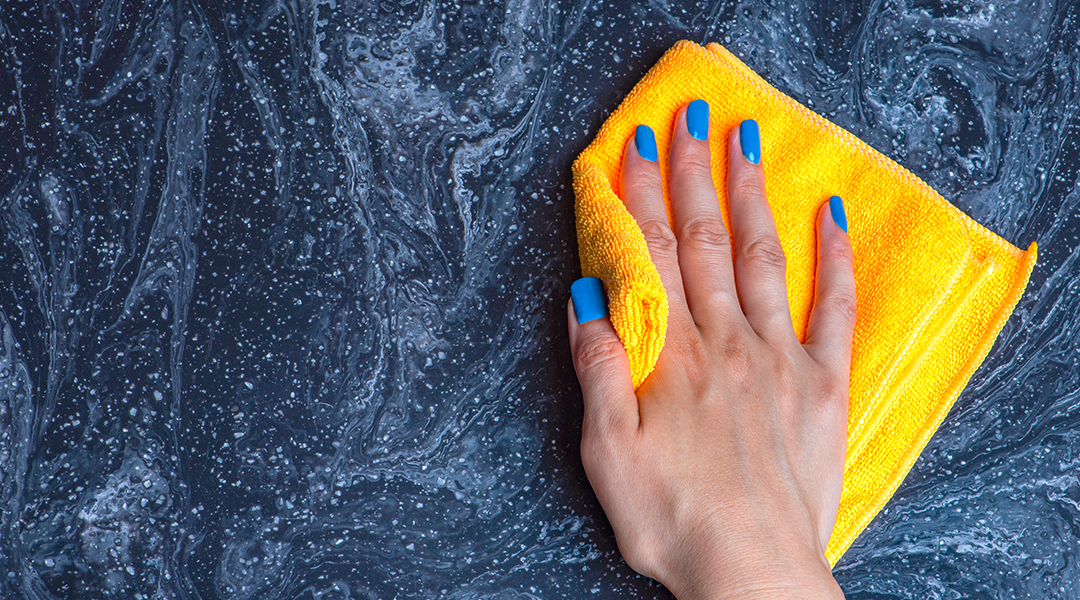Natural stones are an increasingly popular material used for countertops, flooring, walls, and even patios. These expensive investments are incredibly diverse as they come in a variety of colors, patterns, and textures to best suit any design style. The options may seem endless, but the list of suitable cleaners you should use is not. Whether you’re looking for the best natural stone cleaners for your brand-new countertop, or you are in an unfortunate predicament due to some spilled red wine, what is exactly safe to clean your natural stone? Can you use bleach on natural stone? What about vinegar? Put down your gloves and continue reading.
>> Download Our Natural Stone Care Guide — Click Here <<
Can You Use Bleach on Natural Stone?
The simplest answer is no, it is best to avoid bleach when cleaning any type of natural stone. Many home cleaning products, particularly bleach and vinegar, are too harsh or acidic to be on natural stone. These cleaners strip down the stone and leave it in a weak, damaged state. Unfortunately, whenever natural stone is damaged it cannot always be repaired back to its original condition.
Soapstone and Slate are the exceptions when it comes to natural stones’ porosity. Other natural stones are incredibly porous, meaning they require sealings to preserve their integrity and react negatively to certain substances (harsh cleaners and food stains). Although Soapstone and Slate are nonporous, they can still experience discoloration and abrasions from improper cleaning methods.
When cleaning it is best to avoid:
- Bleach
- Vinegar
- Mineral oil
- Scouring powders or creams
- Undiluted ammonia
So, What Can You Use to Clean Stone?
Natural stones are fairly easy to maintain. Once sealed, they require regular wipe-downs with damp sponges or washcloths and non-abrasive cleaners. The best cleaners for natural stone include:
- Cleaners with a neutral pH (7)
- Stone soap
- Mild liquid dishwashing soap with warm water
When cleaning natural stone, avoid using an excessive concentration of soap or cleaner. This may cause a buildup of film or streaks on the stone. If your stone is experiencing a buildup from cleaner, use a gallon of water to dilute a ½ cup of ammonia and wipe the area. Do note that the overuse of ammonia will dull the stone’s surface over time.
Other Care Tips
- Mats and rugs help protect against abrasive sand, dirt, and grit that may scratch your stone floor.
- Always blot, never rub! If you spill a drink, it is recommended to blot the area with a paper towel instead of rubbing to avoid spreading the fluid. To clean the area, use one of the cleaning methods mentioned above. After, dry the area meticulously with a soft cloth.
- Coasters under glasses help prevent potential staining from juices or alcohol.
- When vacuuming, remove plastic or metal attachments from wheels as they can scratch the stone’s surface.
Key Takeaways
In order to protect your natural stone’s beauty and durability, it is best to eschew certain household cleaners and use less harsh options. Natural stones can last many lifetimes and with proper care, their beauty can too.
We hope that this blog was informative, but if you still have questions, our team is here to help. Contact Z Stone Creations for more information concerning natural stones and how to properly preserve them.


